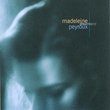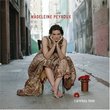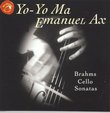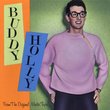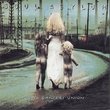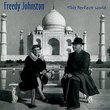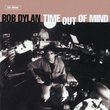| All Artists: Nicolai Gedda, London Philharmonic Orchestra, La Scala Theatre Orchestra, Conservatory Concert Society Orchestra, Paris National Opera Theatre Orchestra Title: Maria Callas: La Divina 3 Members Wishing: 0 Total Copies: 0 Label: EMI Classics Release Date: 1/17/1995 Genre: Classical Styles: Opera & Classical Vocal, Historical Periods, Modern, 20th, & 21st Century Number of Discs: 1 SwapaCD Credits: 1 UPCs: 724355521620, 724355521651 |
Search - Nicolai Gedda, London Philharmonic Orchestra, La Scala Theatre Orchestra :: Maria Callas: La Divina 3
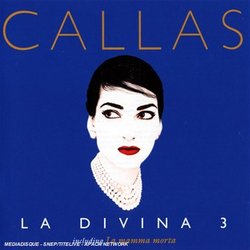 | Nicolai Gedda, London Philharmonic Orchestra, La Scala Theatre Orchestra Maria Callas: La Divina 3 Genre: Classical
|
Larger Image |
CD DetailsSimilar CDs
Similarly Requested CDs
|
CD ReviewsWow im the first to review this masterpiece johnnyg316 | Chicago, IL | 01/11/2001 (5 out of 5 stars) "This CD has two of the best arias every Callas fan should have....the bell song and la mamma morta these arias alone make this cd worth it....she shows her true power and agility in both of these arias that display what is called perfect technique....making her a true Dramatic Colortura singer...and maybe the only real one...but this cd has more it contains an aria from her famous role of Nedda from Pagliacci which she never did on stage so this is a real treat... and her Carmen is always perfectly done...this cd runs through so many beautiful arias and Callas did great in all of them...this is why we call her La Divina" Part III of La Divina Steven A. Peterson | Hershey, PA (Born in Kewanee, IL) | 05/05/2008 (5 out of 5 stars) "Maria Callas is an important singer in opera at mid-20th century. She helped fuel a renewed interest in bel canto, through her efforts in the works of Donizetti and Bellini--even thought she really had little of the classic coloratura soprano skills. But her personality, ability to create characters, and sheer will power made these operas work. Callas was not a great vocal technician; her singing, especially later on, had some ugly sounds. But her distinct voice was important in operatic history. Want a beautiful voice? Go for Mirella Freni or Anna Moffo. Want grit, character, and magic? Callas does nicely there. And until the latter part of her career, her voice was quite good. Some illustrative cuts. The "Seguidilla" from "Carmen." She did not ever perform this on stage, according to the notes. It was the penultimate recording of her career, so she was near the end, when her voice had deteriorated a fair amount. Nonetheless, a compelling little piece. First, as suggested, hers is not a luscious, velvety voice here. This is late Callas, after all. But, second, this remains an affecting version of this piece. She is able to project a character and make the listener interested in her work here. One of her great talents was the ability to create characters and to act on stage at a level many other sopranos could not equal. "Dunqu io son," from "Il Barbiere de Siviglia." This peppy ensemble piece races along. She adds her voice nicely to the overall work. She shows vocal agility with Rossini's music. An enjoyable romp! Toward the end, she opens her voice to high volume, and that produces a not altogether salubrious vocal effect. Nonetheless, a really nice example of her art and an enjoyable piece to listen to. "The Bell Song," from "Lakme." Here is a major league coloratura soprano piece. She does not display some of the tools in the armamentarium of the coloratura soprano, such as an effective trill. Despite that, she shows some nice effects--such as the staccato singing called for. And one ends up listening closely and enjoying the end result. A final example: "O soave fanciulla" from Puccini's "La Boheme." She and Giuseppe di Stefano, the tenor, create a magical few moments. Their voices blend together well; they create a believable scene of two people coming together for the first time. The final high notes conclude this lovely scene nicely. This is one of a series of CDs in the "La Divina" series. The other two are also well worth listening to for those who want to become acquainted with the legendary Maria Callas. I rate this as five stars for its collection of works allowing us to judge "La Divina." " Wonderful conclusion of the La Divina Series Emma de Soleil | On a holiday In Ibiza, then back to the UK for stu | 11/06/2004 (5 out of 5 stars) "Before buying this recording one should check how many of Callas' EMI-recordings are in one's collection because the La Divina Series aren't independent recitals Callas recorded but very good compilations of her great art. This recording starts out with the piece that is famous beyond all other recordings, Callas singing "La mamma morta" from "Andrea Chenier" as used in the fantastic movie "Philadelphia". Tom Hanks' reaction to this voice is not uncommon for Callas goes straight to the heart and will remain there forevermore. Her tormented timbre as Maddalena is so intense, it'll make you weep. Being recorded as part of her glorious "Lyric and coloratura arias" recital this shows Callas in her prime, the prime we know from her divine Tosca for example. "Io son la vita, io son L'amor!" Callas sings, her voice soaring to the stars. Tom Hanks was crying when he listened to this, this true divine sound. The next track is from the "Callas at La Scala" recital, Spontini's forgotten "La Vestale". Only Maria Callas and Rosa Ponselle triumphed in this role and listening to this recording you'll understand why. "O numi tutelar", Giulia's plea to the gods to protect her from her love for Licinius because she's a Vestal Virgin and therefore has to remain chaste. Incredibly beautiful and phrased to perfection. How sad that her complete live-recording is not in good sound because this studio-gem shows what a triumph it could have been.
The next track features her in the French music that suits her best, the music of Massenet. Manon's "Adieu notre petite table" is a famous aria as performed by Victoria de los Angeles, Ileana Cotrubas, Renee Fleming or Beverly Sills. Callas truly sounds like she's nothing but "faiblesse et fragilité" here, one barely hears the voice of Medea or Norma in this gentle sound. I love her as Charlotte as well as Manon, both characters suited her incredibly well. As if to invite comparisons we hear her as the "other" Manon next, the Manon as composed by Puccini. Listen to her "Ah! Saro la piu bella!" sung with all the shallow colours of a luxury-ridden mistress whose voice only sounds fully coloured as her beloved appears. (Tu, tu, amore tu?) Callas and di Stefano had a great chemistry, in the studio as well as on stage and this can be heard incredibly well here. It goes on and on with sparkling renditions of Lakme's and Dinorah's arias, as well as a beautiful "D'amor sul'ali rosee". Björling once said: "Perfection has a name. It's Callas!" And Gigli, when singing a concert with her explained why he couldn't sing a duet with her: "I'm afraid she's just TOO good!" Callas and controversy go hand in hand. Bernstein called her "The greatest artist in the world!" and I, as a mere listener, agree heartily." |

 Track Listings (14) - Disc #1
Track Listings (14) - Disc #1

